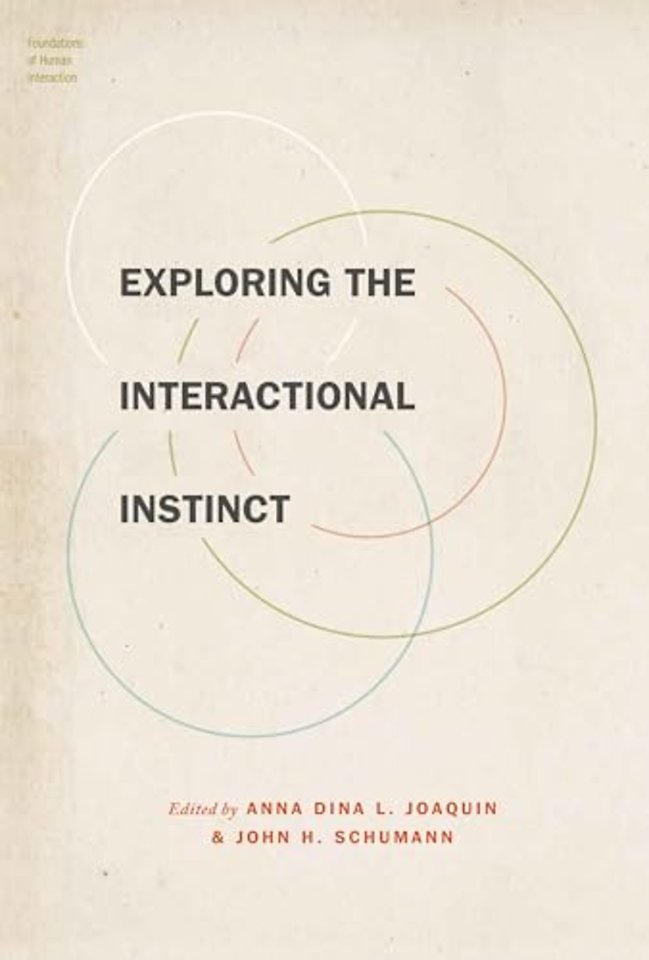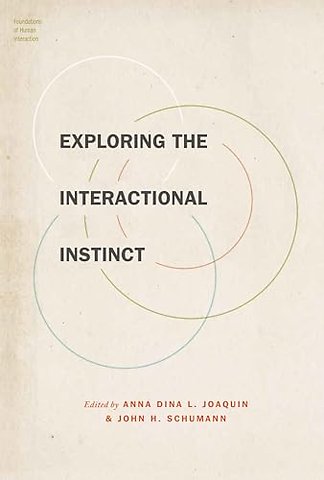Exploring the Interactional Instinct
Gebonden Engels 2014 9780199927005Samenvatting
The Interactional Instinct (Oxford University Press, 2009) argued that the ubiquitous acquisition of language by all normal children was the result of a biologically-based drive for infants and children to attach, bond, and affiliate with conspecifics in an attempt to become like them. This instinct leads children to seek out verbal interaction with caregivers and allows them to become competent language speakers by about age 8. In Exploring the Interactional Instinct, scholars in applied linguistics expand the theory by examining interaction in second language acquisition; in different cultures and species; in observation without participation; in literacy; in schizophrenia; in relation to human physiological responses; and in relation to correlated perspectives on interaction. This book, like its predecessor, offers a radical view of language acquisition: language is not acquired as a result of a Language Acquisition Device in the brain, but is rather a cultural artifact universally acquired by all normal children.
Specificaties
Lezersrecensies
Rubrieken
- advisering
- algemeen management
- coaching en trainen
- communicatie en media
- economie
- financieel management
- inkoop en logistiek
- internet en social media
- it-management / ict
- juridisch
- leiderschap
- marketing
- mens en maatschappij
- non-profit
- ondernemen
- organisatiekunde
- personal finance
- personeelsmanagement
- persoonlijke effectiviteit
- projectmanagement
- psychologie
- reclame en verkoop
- strategisch management
- verandermanagement
- werk en loopbaan

